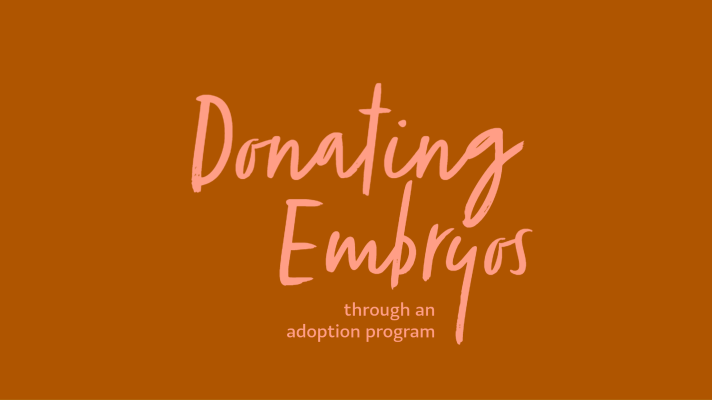In vitro fertilization (IVF) can be an extensive and draining process both financially and emotionally. You may now have remaining embryos in frozen storage after completing your own family. What should you do with them?
You have options.
- Thaw and discard the embryos
- Donate the embryos to science for research
- Continue to pay storage costs and decide later
- Donate the embryos to another couple for their own family building
Embryo adoption is more than just a medical procedure. Embryo adoption applies the best practices of adoption to the process of embryo donation. Adoptive (recipient) families are empowered to select the family who will receive your embryos. It may be a family who has similar infertility experiences as you. It may be an adopting family who has never experienced infertility, but has determined embryo adoption is the right adoption path for their family.
An embryo adoption program provides you with peace of mind. Unlike many embryo donation programs, the adopting families have been vetted by an adoption home study. A home study involves review of detailed adoptive parent information [including finances, health, marriage, and faith], home visits, and adoption education social service experts.
Some embryo adoption programs ask families to create a family profile to allow a glimpse into their lives and to begin the process of building relationships through the matching of families.
Open communications between you and the adopting family provides the connections that are so important to children. The building of relationships expands the love a child experiences and security they feel in knowing their origins. It builds a fantastic support system! Which is even more important as the children born to the adopting family will be the genetic siblings to your own children.
To learn more about the embryo adoption programs you can donate your embryos to, visit EmbryoAdoption.org.


Recent Comments